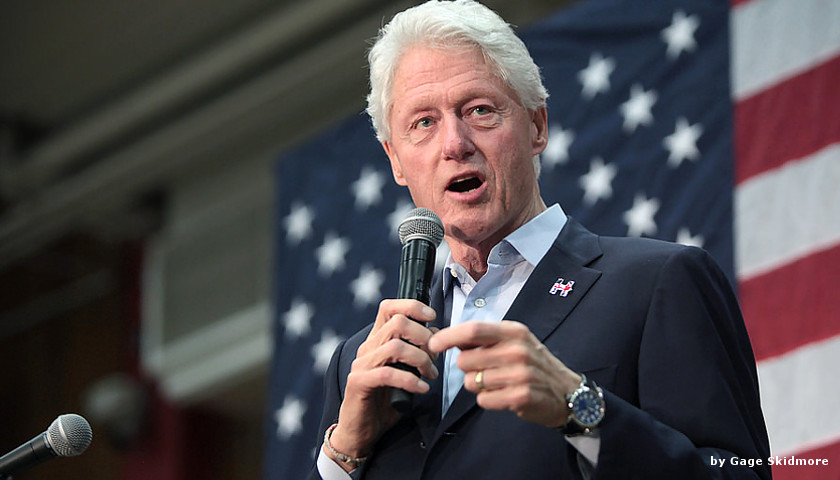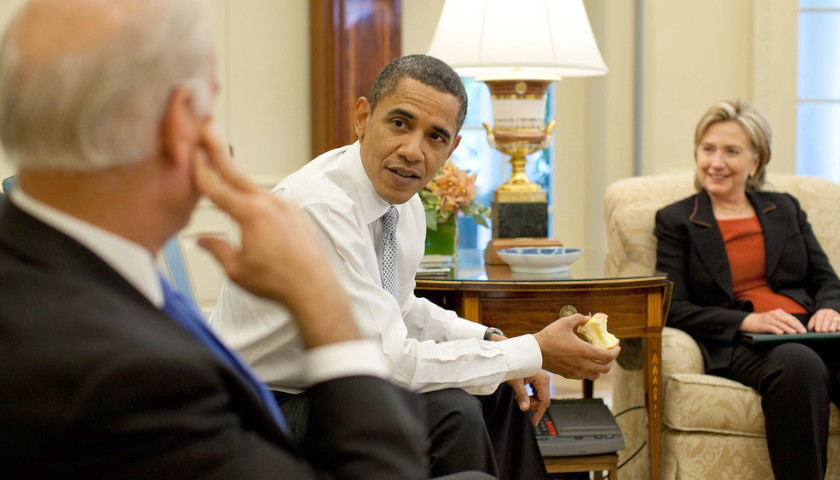Nearly 20 years after he left the White House, Bill Clinton is still sought after for advice by some Democrats running for president. But the names on his dance card in recent months underscore how much his standing in the party has changed.
So far, none of the party’s early front-runners has had a formal meeting with Clinton. Nor have the women who are running in the historically diverse primary field.
Instead, Clinton has spoken mostly with male candidates who are considered longshots for the Democratic nomination, including Montana Gov. Steve Bullock, former Housing secretary Julian Castro and former Maryland Rep. John Delaney.
Clinton remains one of Democrats’ most successful politicians of the last half-century and one of its strongest messengers on the economy. Yet the party has shifted considerably to the left since his two terms in White House, and his personal baggage – as well as lingering hostilities from his wife Hillary Clinton’s failed 2016 campaign – make him an awkward adviser for some in his party’s next class of presidential hopefuls.
Tensions run particularly deep between the Clintons and Vermont Sen. Bernie Sanders, who has launched another bid for the White House. The Clintons blame Sanders for damaging Hillary Clinton during the 2016 primary. And as they assess the 2020 field, the Clintons don’t believe Sanders is capable of beating Trump, according to those who have spoken with them.
“I think that at some point bygones can be bygones, but what you can’t get around is the electability question,” said David Brock, a longtime Clinton ally.
Neither side tried to mask the tensions in the days since Sanders launched his 2020 campaign. When asked Friday on ABC’s “The View” whether he would seek campaign advice from Hillary Clinton, Sanders said: “I think not.”
There was not much warmth between Sanders and Hillary Clinton on Sunday when the two were in Selma, Alabama, to mark the 54th anniversary of the “Bloody Sunday” clash.
Bill Clinton has offered advice to a handful of candidates, sometimes meeting them at his New York office or speaking to them by phone. Former Colorado Gov. John Hickenlooper was meeting with Hillary Clinton at the couple’s Chappaqua, New York, home when the former president stopped by and sat in on the rest of the meeting.
Castro, the former secretary of Housing and Urban Development, said he spoke with Clinton in January and “got some good advice,” though he wouldn’t elaborate on what they discussed. Others discussed meetings with Clinton on the condition of anonymity in order to speak about the private conversations.
Clinton’s friends say he still relishes the political debate and is closely monitoring early developments in the primary. While he doesn’t have much of a relationship with some of the younger White House hopefuls, like Beto O’Rourke, some of his contemporaries are considering running, including former New York Mayor Michael Bloomberg and former Vice President Joe Biden. Neither has had a formal meeting with Clinton about the campaign, but they’ve talked politics with him for years.
The 72-year-old former president rarely offers tactical advice about how to structure a campaign, according to people with knowledge of the conversations. He’s said to be well-aware that technology and campaign tactics have significantly evolved since he was last on the ballot in 1996.
But the famously verbose Clinton does dive deep into policy and offers advice on how to appeal to the same economic anxiety that drove some white, working-class voters to side with Trump over his wife.
Clinton’s focus on white, working-class voters became something of a joke within his wife’s 2016 campaign, with aides privately mocking his insistence on plunging more energy and resources into states like Michigan and Wisconsin. Top campaign advisers believed they didn’t need to invest heavily in those reliably Democratic states, then watched Trump narrowly edge Clinton out in the upper Midwest on his way to the presidency.
Some progressives say that while they agree Democrats can’t turn their backs on white, working-class voters, they see Clinton’s more centrist approach to winning back those voters as a throwback to an era – and a party – that no longer exists.
“Times have changed,” said Adam Green, co-founder of the Progressive Change Campaign Committee, a liberal group that has endorsed Massachusetts Sen. Elizabeth Warren. “The center of gravity within the Democratic Party and the electorate overall has moved massively in a more populist direction.”
Indeed, some of Clinton’s signature policies – including the North America Free Trade Agreement and the 1994 crime bill – are out of step with the mainstream of the Democratic Party. Clinton himself has acknowledged that the crime bill worsened the problem of mass incarcerations, particularly among black men.
It’s Clinton’s personal baggage that has created another uncomfortable dynamic with Democrats running for the White House.
New York Sen. Kirsten Gillibrand, who had been backed by the couple throughout her political career, said Clinton should have resigned from office because of his affair with a White House intern. The former president has tried to publicly brush off the comment, saying Gillibrand – a leading Senate voice on sexual harassment and assault – is “living in a different context.” But Clinton allies say the couple’s anger at Gillibrand runs deep and their relationship may be irreparable.
Other women seeking the Democratic nomination also haven’t met with Clinton, including Warren and California Sen. Kamala Harris. Minnesota Sen. Amy Klobuchar spoke with Clinton briefly at last month’s funeral for John Dingell, the retired Democratic congressman.
2020 wouldn’t be the first time Clinton has been sidelined in part because of his personal transgressions. His own vice president, Al Gore, distanced himself from Clinton during the 2000 campaign, a move some Democrats still see as a mistake. But views on Clinton shifted, and by 2012, he was considered one of the strongest surrogates for Barack Obama’s re-election campaign.
In a shot at those who see Clinton as an albatross this time around, one ally of the former president referenced Gore and said the track record isn’t good for candidates who distance themselves from Clinton.
– – –
Photo “Bill Clinton” by Gage Skidmore CC2.0





